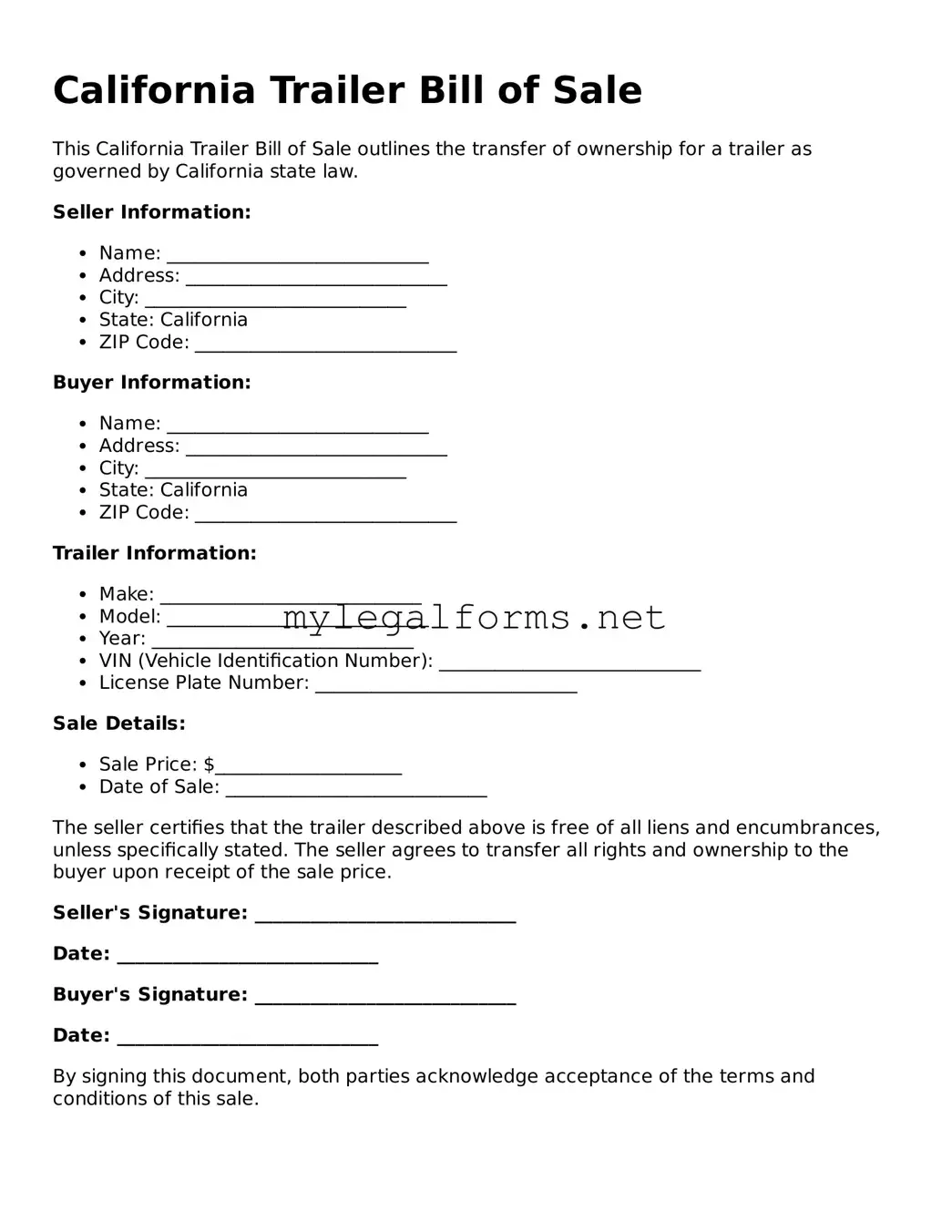Trailer Bill of Sale Document for California State
The California Trailer Bill of Sale form is a legal document that facilitates the transfer of ownership for trailers in the state of California. This form serves as proof of sale and includes essential details about the trailer and the parties involved. Understanding its importance can help ensure a smooth transaction and protect both buyers and sellers.
Launch Trailer Bill of Sale Editor

Trailer Bill of Sale Document for California State
Launch Trailer Bill of Sale Editor

Launch Trailer Bill of Sale Editor
or
⇓ PDF Form
Complete the form at your pace — fast
Finish your Trailer Bill of Sale online and download the final version.